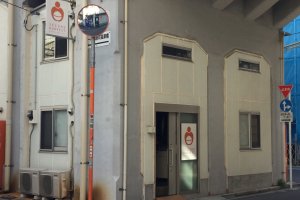One of the emerging trends in today's travel is voluntourism or social impact tourism. Travel has always been a vital part of personal growth, broadening perspectives, and enriching life experience. Voluntourism in particular allows travelers to have a fun vacation but also do something meaningful with the time spent in a different country. Young travelers are particularly attracted to voluntouring as they have the energy, passion, and genuine desire to create actionable change in the communities they visit.
Engaging in voluntourism may not be the easiest thing in Japan where language may be a barrier and travelers may not know where to look for volunteer opportunities. Enter Second Harvest Japan, Japan's first and largest food bank. Started in 2000 by Charles McJilton as a loose coalition of representative and community leaders in San'ya (a low income neighborhood often associated with cheap housing and day laborers), Second Harvest Japan has grown into Japan's largest food bank which has partnerships with over 1200 food companies and distributes food to over 260 welfare agencies, NPOs, and faith-based groups in the Kanto area. Second Harvest Japan also responded immediately in the aftermath of the earthquake and tsunami that struck Tohoku in 2011, as well as the 2016 earthquake in Kumamoto.
There are two activities that volunteers can immediately sign up for. The Harvest Kitchen is a once a week hot meal program at Ueno Park. Volunteers can sign up for one of two shifts on Friday to prepare the food, and/or one of three shifts on Saturday to prepare, distribute, and clean-up. Each shift is about 2.5 hours long. The other activity is the Harvest Pantry. Volunteers can help prepare emergency groceries and care packages to household in need of assistance. Volunteers are required to be at least 12 years old. Reservation is required and can be done online on this webpage. Japanese language skills are not necessary.
If you have some expertise or special skills and would like to do some pro bono work, Second Harvest Japan could use your help in translation, consultation on logistics and operational efficiency, and checking contracts and legal documents.
If you are interested in learning more about food banks, food loss, NPOs and poverty in Japan and have between a week to several months to spare, interning might be the best way to volunteer and deepen your understanding of food safety net issues in Japan. Interns participate in many activities that are designed just for them, such as preparing for our volunteer activities, data input, picking up and delivering food products.
Here is a complete list of ways you can get involved for a meaningful and unconventional travel experience in Japan.































